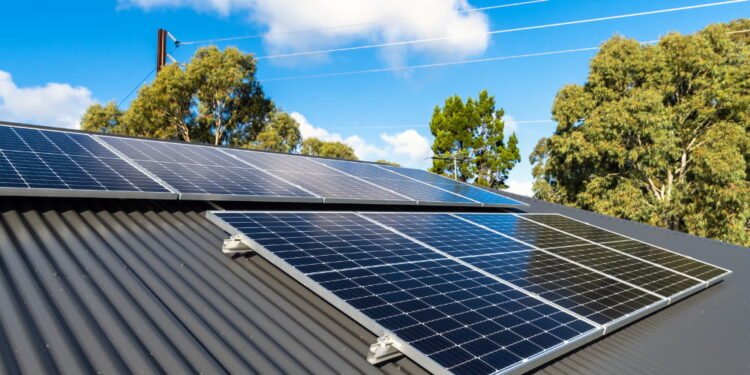With growing consciousness about climate change, more individuals seek ways to minimize their carbon footprint. Investing in renewable energy projects like solar power is one way to do this.
In this article, Let us explore how solar energy works and how we can use it for various solar energy projects.
How Solar Energy Works
Solar panels capture the energy from the sun to generate usable electricity. The panels comprise photovoltaic cells that absorb photons from the sun’s rays.
When the photons are absorbed, they cause electrons in the cells to move, creating an electrical current. The current generated can power homes, businesses, and other structures.
Residential Solar Energy Projects
One of the most popular uses of solar energy is in residential solar energy projects. Typically, these projects entail the installation of solar panels on a home or building’s roof to power electrical appliances and devices. Although installing solar panels can be costly, it can result in substantial savings on energy bills over the long run.
Commercial Solar Energy Projects
In addition, solar energy can serve commercial purposes. Numerous companies are financing solar energy ventures to curb their carbon footprint and decrease energy expenses.
These projects can involve installing large solar arrays on the roofs of buildings or in nearby fields, which can generate enough electricity to power the entire business.
Options For Solar Energy Storage
The limited availability of solar energy during the daytime is one of its drawbacks. However, solar energy storage technology advancements have made it possible to store excess energy generated during the day for use at night or during periods of low sunlight. Battery storage systems keep extra solar power when the sun is not shining.
Government Incentives For Solar Energy Projects
Solar panels capture the energy from the sun and generate usable electricity. These incentives can include tax credits, rebates, and other financial incentives to help offset the cost of installing solar panels.
In some cases, governments may also require utilities to purchase excess solar energy generated by residential or commercial solar energy projects, which can provide an additional source of income for those who invest in solar energy.
Advantages And Disadvantages Of The Process
Solar energy has several advantages when deciding whether to invest in solar renewable energy projects. Some benefits of solar energy include the following:
- Renewable and sustainable: Solar energy is a sustainable and renewable energy source that is environmentally friendly and doesn’t emit greenhouse gases or pollutants.
- Cost-effective: Once installed, solar panels require very little maintenance, and the cost of solar panels has decreased significantly over the years.
Conclusion
Solar energy is a renewable energy project that has the potential to reduce our reliance on fossil fuels and mitigate the effects of climate change. Individuals and businesses can save money on energy costs by investing in solar energy projects while reducing their carbon footprint. With advances in solar energy storage technology and government incentives, the future of solar energy looks bright.
Also Read: Here are 7 reasons IT Support is so important for businesses




